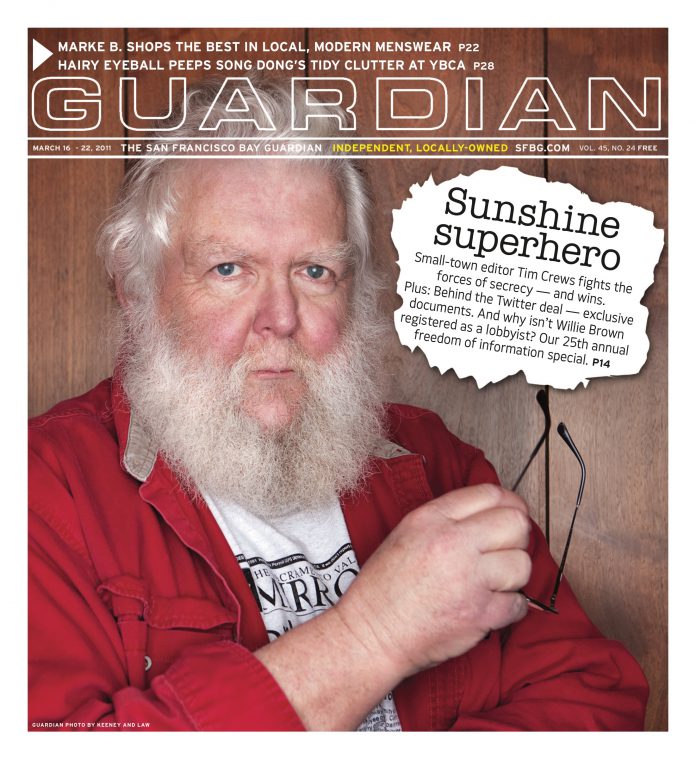tredmond@sfbg.com
The numbers in the Twitter tax-break deal just keep getting bigger. And the politics keep getting stranger.
City Editor Steven T. Jones went through hundreds of pages of city records on the Twitter negotiations; the results of his investigation are in this issue.
But two elements jumped out at me right away. One is that San Francisco officials seem be really bad at negotiating with private companies. It’s now clear that billionaire Oracle CEO Larry Ellison took the city to the cleaners on the America’s Cup deal, demanding (and getting) millions of dollars in extra concessions that the Board of Supervisors never approved. And talks with Twitter aren’t a whole lot better.
Then there’s the size of the tax break.
When this was first presented, proponents argued that the city’s 1.5 percent payroll tax would discourage Twitter from staying in town and expanding its workforce. I’ve always said that’s ridiculous; the tax amounts to such a modest business expense that no honest corporate executive would ever say it was a factor in a hiring or relocation decision.
Ah, but that’s not what’s really going on here. The documents show that Twitter isn’t just worried about the annual payroll tax. It’s all about what happens when the company goes public — and many of its employees become very, very rich.
See, the city’s payroll tax also applies to stock options. If, as city economist Ted Egan estimates, Twitter winds up after its initial public offering with a market capitalization of $12 billion (entirely possible), and 25 percent of that money goes to employees as stock options (entirely possible), then the Twitterites (350 or so now and maybe another 300 in a few years) will walk away (after costs) with $2.7 billion.
That’s about $7.7 million for each current employee — although the folks at the top will get a whole lot more than that.
So several hundred instant multimillionaires and possibly a couple of instant billionaires. People who will vault into the income and wealth bracket that has been radically undertaxed in this country for many years.
For the $12 billion company, it also means a payroll tax liability of $40 million. And that’s got Twitter all a-twitter.
Let’s be honest here: A number like that is not chump change, and might convince a CEO to leave town. But it’s also politically tricky. Who wants to go out there and argue that a company that rich, with all those rich employees, can’t pay taxes on its windfall?
The payroll tax exemption is supposed to create jobs. This is another league altogether — and it has nothing to do with job creation.
So let’s have that discussion, shall we? Forget the puny tax on weekly payroll and this rapidly-growing tax-free zone in the Tenderloin. Cut to the chase: should San Francisco exempt Twitter from the IPO stock options tax? That, at least, is worth fighting about.

